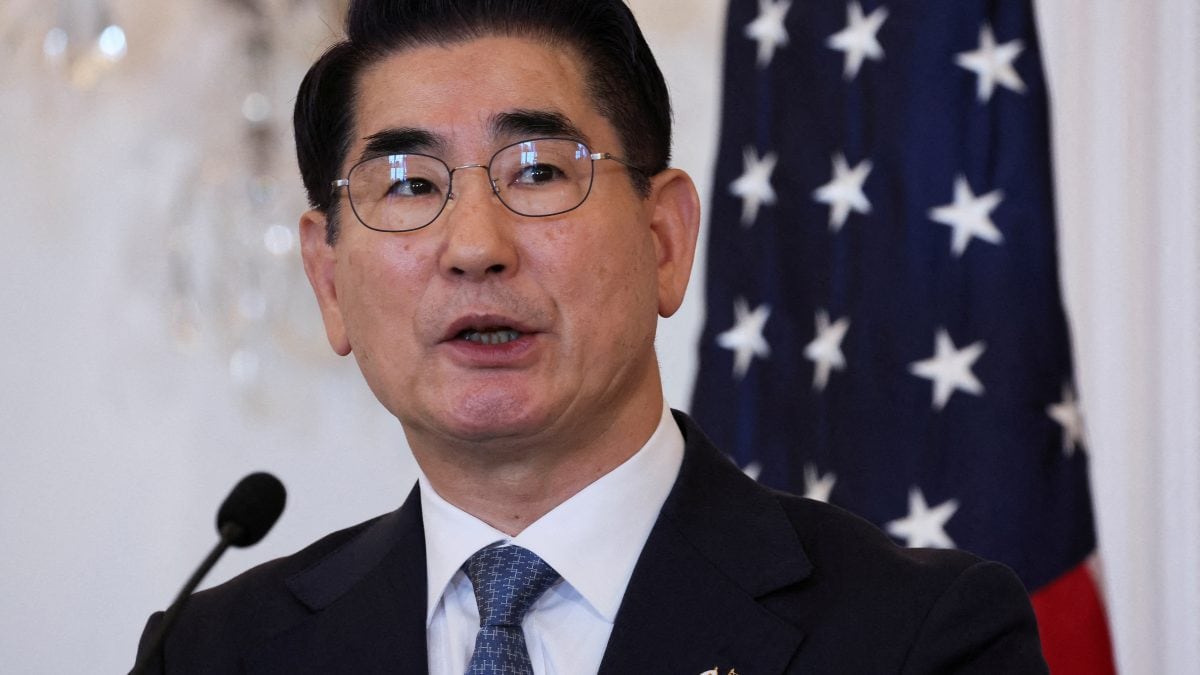
Timber companies in cameroon Kim Yong-hyun had already resigned as defence minister after the brief suspension of civilian rule late on Tuesday by Yoon that saw soldiers and helicopters sent to parliamentread more
South Korea’s former defence minister Kim Yong-hyun. File image/ Reuters
South Korea’s former defence minister was arrested Sunday, local media reported, a day after President Yoon Suk Yeol survived an impeachment vote over his calamitous attempt to impose martial law.
The motion failed due to a boycott of the vote by Yoon’s party, even though huge crowds braved freezing temperatures in another night of protests outside parliament in Seoul to demand the president’s ouster.
Kim Yong-hyun had already resigned as defence minister after the brief suspension of civilian rule late on Tuesday by Yoon that saw soldiers and helicopters sent to parliament.
Yoon was forced to rescind the order hours later and parliament voted down his decree.
Kim had already been slapped with a travel ban.
Police have launched an investigation into Yoon, Kim and others for alleged insurrection.
The prosecutors’ office was not immediately available for comment on Kim’s arrest, reported by the Yonhap news agency and other local media outlets Sunday morning.
Boycott
Opposition parties proposed the impeachment motion, which needed 200 votes in the 300-member parliament to pass, but a near-total boycott by Yoon’s People Power Party (PPP) doomed it to failure.
The PPP said after the vote that it had blocked the impeachment to avoid “severe division and chaos”, adding that it would “resolve this crisis in a more orderly and responsible manner”.
Party leader Han Dong-hoon said that the party had “effectively obtained” Yoon’s promise to step down, and said until this happened he would “be effectively excluded from his duties”, leaving the prime minister and party to manage state affairs.
The failure of the impeachment motion came as a huge blow to the massive crowds – numbering 150,000 according to police, one million according to organisers – demonstrating outside parliament.
National Assembly speaker Woo Won-shik called the PPP’s walkout “a failure to engage in the democratic process” on the part of the ruling party.
“Even though we didn’t get the outcome we wanted today, I am neither discouraged nor disappointed because we will get it eventually,” protester Jo Ah-gyeong, 30, said Saturday.
“I’ll keep coming here until we get it,” she told AFP.
‘Politically dead’
The opposition has already vowed to try to impeach Yoon again as soon as Wednesday, and many protesters vowed to continue demonstrations next weekend.
“I will impeach Yoon Suk Yeol, who has become the worst risk for South Korea, at any cost,” opposition leader Lee Jae-myung said.
Before the vote, Yoon, 63, had apologised for the turmoil but said he would leave it to his party to decide his fate.
“I caused anxiety and inconvenience to the public. I sincerely apologise,” he said in the televised address, his first public appearance in three days.
He said he would “entrust the party with measures to stabilise the political situation, including my term in office”.
The backing of PPP lawmakers came despite party head Han – who was allegedly on an arrest list on Tuesday night – saying Yoon must go.
Only three PPP lawmakers – Ahn Cheol-soo, Kim Yea-ji and Kim Sang-wook – voted in the end.
The failure of the impeachment motion “means a more protracted political crisis,” Vladimir Tikhonov, professor of Korean Studies at the University of Oslo, told AFP.
“We will have a politically dead president – basically unable to govern any longer – and hundreds of thousands coming to the streets every week until Yoon is removed,” he said.
End of Article

